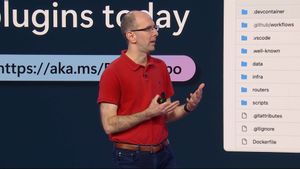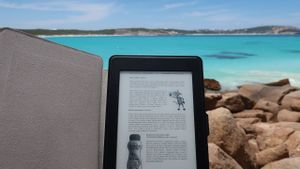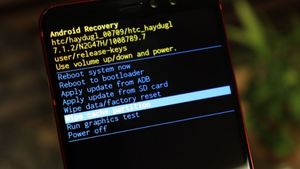JAKARTA Astronomers at the New Jersey Institute of Technology's Solar Terrestrial Research Center (NJIT-CSTR) announced an extraordinary discovery regarding radio wave bursts in the Sun.
For the first time, NJIT-CSTR found radio emissions that looked similar to aurora, a phenomenon of emitting light in the northern hemisphere of the earth at night. This emission forms 40,000 kilometers above the sun.
According to a report by NJIT-CSTR scientist Sijie Yu, this incident came from sunspots, which are solar regions that are so dark and cold. This emission is a polarized radio explosion that lasted for more than a week.
This is very different from a temporary solar radio explosion that usually lasts a few minutes or hours. This is an interesting discovery that has the potential to change our understanding of the stellar magnetic process," Yu said, quoted by VOI from the NJIT website.
According to the results of his team's discovery, Yu said that this radio emission was formed because the solar magnetic field line was so strong. However, the emission is different from usual, from the wavelength category to the duration of its resilience.
اقرأ أيضا:
"Unlike the aurora on Earth, this sunspot aurora emission occurs at frequencies ranging from hundreds of thousands of kHz to about 1 million kHz, as a result of the sunspot magnetic field which is thousands of times stronger than the earth's magnetic field," said Yu.
Through the results of these observations, astronomers can conduct research by connecting the solar behavior and the surrounding magnetic phenomena. The results of this study can make physicists rethink the magnetic state in today's stars.
We are starting to gather puzzles about how energetic particles and magnetic fields interact in a system with the existence of long-lasting starspots, not only in our Sun, but also in stars far outside our solar system, Yu explained.
The English, Chinese, Japanese, Arabic, and French versions are automatically generated by the AI. So there may still be inaccuracies in translating, please always see Indonesian as our main language. (system supported by DigitalSiber.id)















